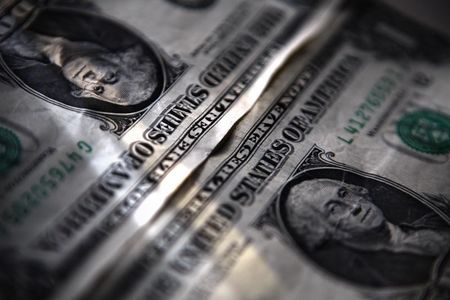Forex
Why US election should be dollar positive: Citi

Citi strategists on Thursday reiterated their view that the U.S. election is “US dollar positive,” while acknowledging other factors that could make an impact in the coming months, such as Federal Reserve policy, recession risks, and global economic conditions.
According to Citi, trade and tariff policies are expected to be the primary drivers of a bullish USD outlook related to the election. Specifically, the potential for increased tariffs, especially those targeting China, is seen as a key factor that could strengthen the dollar.
Strategists highlighted currencies such as the Chinese yuan (), euro (), Mexican peso (), Taiwanese dollar (), and Thai baht () are identified as particularly vulnerable to these risks.
However, the macroeconomic landscape remains uncertain, and other catalysts may become more influential.
Citi outlines various election scenarios, with different implications for the dollar. A “red wave” scenario, where Trump wins and Republicans gain control of both chambers of Congress, is seen as the most USD positive. In this case, Citi expects a focus on improving the trade deficit through tariffs and potentially some fiscal expansion through further tax cuts and deregulation.
“We therefore find that to be a consistent market premium for a red wave. However, we see the 5% as a ceiling for how much the USD could rally on election risk alone given other factors currently impacting the greenback,” Citi’s note states.
The report also notes that market participants typically begin to trade election themes two to three months ahead of the event, with the U.S. presidential debates in September marking a key point for markets to start pricing in election outcomes more seriously.
Strategists expect that any USD strength related to the election will likely be priced in well before November, with the dollar possibly reaching its peak around that time.
“This suggests the election will be a “sell the news” event for the USD and for volatility,” they add.
They also point out that other factors will remain important for the greenback in the coming months. Federal Reserve policy, particularly the path of interest rates, and broader macroeconomic conditions, including the probability of a U.S. recession, will influence the dollar alongside election risks.
Furthermore, global economic developments, such as the slowdown in manufacturing and economic challenges in Europe and China, could also make an impact.

 Forex3 years ago
Forex3 years agoForex Today: the dollar is gaining strength amid gloomy sentiment at the start of the Fed’s week

 Forex3 years ago
Forex3 years agoUnbiased review of Pocket Option broker

 Forex3 years ago
Forex3 years agoDollar to pound sterling exchange rate today: Pound plummeted to its lowest since 1985

 Forex3 years ago
Forex3 years agoHow is the Australian dollar doing today?

 Cryptocurrency3 years ago
Cryptocurrency3 years agoWhat happened in the crypto market – current events today

 World3 years ago
World3 years agoWhy are modern video games an art form?

 Commodities3 years ago
Commodities3 years agoCopper continues to fall in price on expectations of lower demand in China

 Economy3 years ago
Economy3 years agoCrude oil tankers double in price due to EU anti-Russian sanctions




























